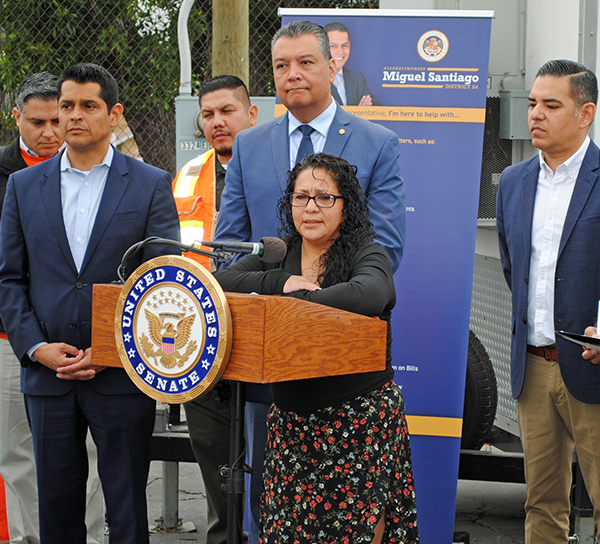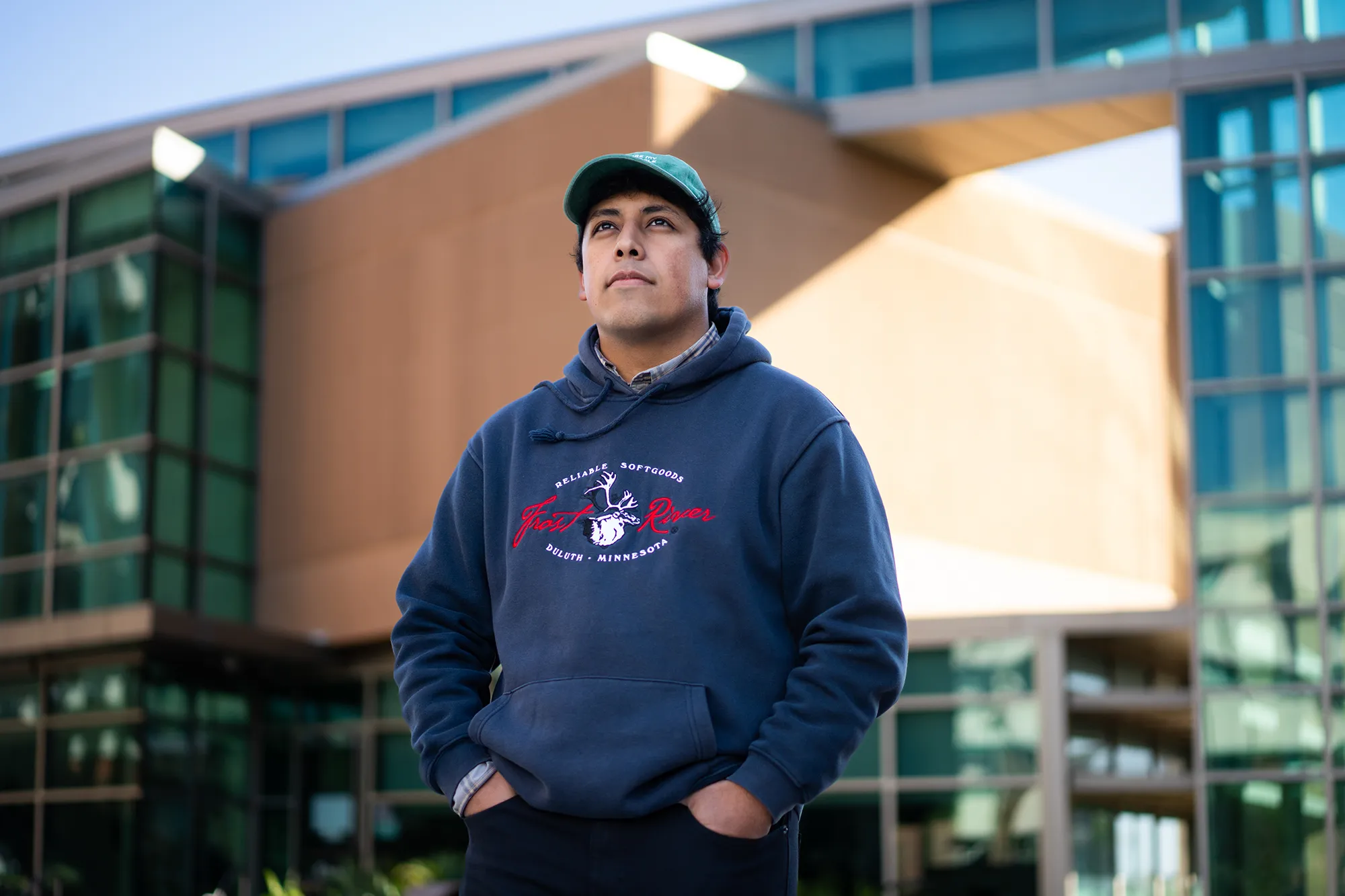By Alfredo Santana
Contributing Writer
BOYLE HEIGHTS — U.S. Sen. Alex Padilla vowed to continue pressing federal authorities to designate neighborhoods adjacent to the Exide Technology battery recycling plant in Vernon a Superfund site.
Speaking at a press conference June 9, Padilla promised not to rest until the U.S. Environmental Protection Agency grants that designation to the area surrounding the closed plant, thus securing federal resources to continue remediation of about 4,160 remaining homes of a total of 10,100 properties.
The latest cleanup progress report from the state Department of Toxic Public Control, the agency in charge of supervising the cleanup, put the number of decontaminated parcels at 4,675.
“Too many people are still getting sick because of Exide dumping lead into communities. It’s an outrage,” Padilla said.
Minutes before the press conference was held at the parking lot of Resurrection Catholic Church, Padilla, accompanied by Assemblyman Miguel Santiago and Monsignor John Moretta, witnessed the process of scooping up tainted soil from a property being cleaned by a crew of workers hired by subcontractor SF&S Construction.
Padilla met with several employees and Gonzalez-Cano, a homeowner whose parcel contains hazardous lead levels but has not been enlisted to incur a cleaning, despite her claims that relatives have developed diseases caused by the toxic metal.
Padilla, who grew up in the Northeast San Fernando Valley, drew parallels of people in the community of Pacoima and the mostly Latino residents now living in Boyle Heights, East Los Angeles, Commerce, Maywood, Bell and Huntington Park.
“Latinos have suffered asthma, cancer and other serious illnesses,” he said. “Ten years later, and it’s not close to be done. Soil cleaning and testing, all cost money.”
The senator announced that the EPA already cleared the first phase in the process for the Superfund to be approved.
Santiago, who represents the 54th Assembly District in Sacramento, criticized the Department of Toxic Substances Control for issuing temporary operating permits to Exide from the early 2000s through 2014, and said the agency is partly responsible for the environmental crisis in Southeast Los Angeles.
An air quality monitor from the South Coast Air Quality Management District parked behind the church measured lead presence in the area, and helps in the efforts to make a stronger case for the Superfund and state resources, he said.
“We are fighting to correct the injustices in these communities,” Santiago said. “This device helps us to be eligible for funds and continue cleanups.”
Speaking aftero the elected leaders, Gonzalez-Cano said her family roots in the neighborhood go back to the early 1900s, and neither she or her deceased parents had any idea of the industrial pollution dumped on her community before relatives got sick and died.
She used to grow vegetables, herbs and fruits at the house yards, and ate them along family members, unaware the foods might be tainted by hazardous metals.
Now her brother lives with cancer, and she said she wished to have never let her two adult children play sports and slide on the ground of fields built on local parks.
“That is the tragedy of what has happened in these neighborhoods. We are slowly dying,” she said.
She questioned the Department of Toxic Substances Control’s alleged approach to pick and choose the properties with more than 200 parts per million of lead concentration for cleanups as a shortsighted decision that has caused more people to get sick.
Gonzalez-Cano echoed the concerns of many residents that many cleanups are lax.
Now, she said she is stuck with a property she cannot sell unless it is disclosed that the lot requires a soil cleanup, further depreciating its value in a neighborhood roiling with still untreated parkways.
Padilla, Santiago and U.S. Reps. Jimmy Gomez and Robert Garcia took turns slamming former President Donald Trump, his Attorney General William Barr and previous EPA Administrator Andrew Wheeler for letting Exide Technologies off the hook after the company filed for bankruptcy in 2020.
The senator said he approached representatives from the U.S. Department of Justice to ratchet up policy changes to crack down on corporate polluters so they cannot dodge responsibilities in the future if they declared bankruptcy.
Garcia, whose 42th Congressional District covers most communities impacted by Exide, said it is time for the federal government to stop corporations bent on profiting and dumping their waste on blue-collar communities.
“What happened here is an environmental catastrophe,” Garcia said. “It’s environmental racism. It’s time for the federal government to take over the cleanup.”
Emissions released by the plant during the process of crushing batteries over 92 years of operations caused 19 people to die of cancer within one block of the church where the press conference was being held, Garcia said.
He pledged to continue working with Padilla and Gomez at the federal level to increase oversight of corporate polluters and help designate the area a Superfund site.
“The federal government needs to ensure this place is cleaned and this doesn’t happen again,” Garcia added.
Gomez, who represents the 34th Congressional District, praised the state for earmarking more than $700 million for residential and plant cleanups, but underscored that much more will be needed.
“It’s time for the EPA to designate Exide a Superfund site, so we can continue cleaning the properties,” Gomez said.
Santiago said he invited U.S. Health and Human Services Secretary Xavier Becerra to tour the Exide area, learn about the current cleanups, address petitions to conduct more efficient tests and expand medical services for residents worried of being exposed to lead, arsenic and other metals.
“This would be part of an overall expansion of cleanups and better services,” Santiago said. “These issues would be better addressed with more funds from the Superfund.”












